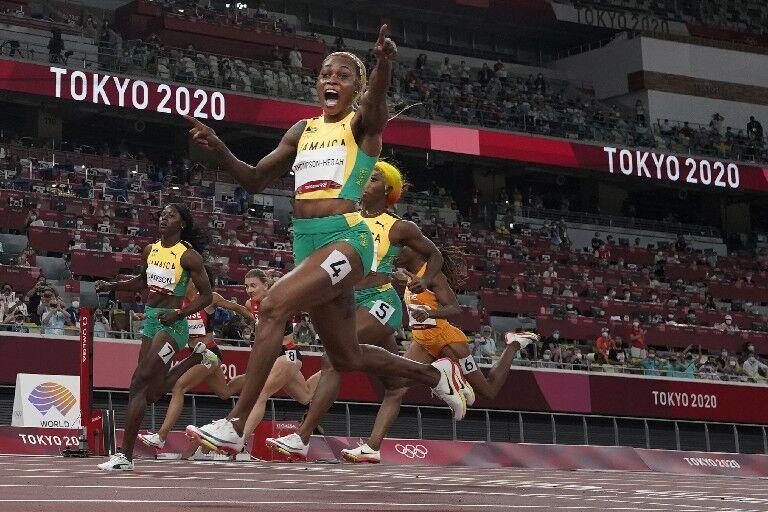
Year of records by technology
![]() : Express : Sports Desk : 13.12.2021
: Express : Sports Desk : 13.12.2021
When World Athletics Chief Sebastian Coe began his year in review by highlighting "breathtaking performances," he summed up the sport's current paradox perfectly - people are dumbfounded by this.
For decades, huge world records have often been greeted with a doping-weary assumption, but many of today's even bigger leaps are the result of "performance enhancing technology".
The jaw drop is too often accompanied by nods as a succession of amazing track and road performances left fans completely bewildered.
The men's 400-metre hurdles Olympic final in Tokyo this year, widely hailed as one of the greatest races in history, illustrates the problem perfectly.
American Kevin Young's world record of 46.78 seconds had been held for 29 years before Norway's Karsten Warholm finally nibbled eight hundredths in Oslo in July.
In Tokyo, Warholm burned an incredible 45.94 seconds, while American Rai Benjamin and Brazilian Alison do Santos were also inside Youngs' mark that had been untouchable for nearly three decades.
While skeptics reacted not with adulation but with questions about the seemingly obvious impact of the new chunky, carbon-plated spikes and the "energy return" Tokyo track, Benjamin fought back by saying he could have done it in any shoe.
"No one will do what we just did," he said. "Kevin Young, Edwin Moses (who broke the world record four times and won two Olympic golds in ten years of 122 consecutive wins), respect to these guys, but they can't run what we just ran."
It was a similar story, but with smaller margins, in the women's event where Sydney McLaughlin and Dalilah Muhammad ran McLaughlin's pre-Games world record almost a second faster than the mark set by the Russian Yuliya Pechonkina in 2003 which lasted 16 years.
Of course times have always been faster and technical innovations have helped, but the leaps seen now are, in the words of Warholm himself, "taking away the credibility of our sport."
One of the other highlights of the Tokyo Olympic programme has been Jamaican Elaine Thompson-Herah's unprecedented retention of the 100m and 200m titles as, also aided by carbon spikes, she has moved closer to the extraordinary and extremely dubious times set by the late Florence Griffith. Joyner in 1988.
It's a similar story on the roads, where the World Athletics 2020 shoe design rules have to be one of the best examples of the stable door closing after the horse has not only bolted but gone on to the hills.
Records continue to drop across the board and this year almost two minutes has been erased from the women's half marathon world record, in three massive bites.
Coe says there's no point in trying now to put these seemingly extraordinary performances into historical context, and in the case of the two 400m hurdles races, for example, he's surely right that fans should sit down and just enjoy the superb face to face showdowns on the biggest stage of all.
However, the most uplifting event of the year in athletics may not have been a record or an absolute winner, as Qatari Mutaz Essa Barshim and Italian Gianmarco Tamberi found themselves stuck together after three chess at 2.39 metres in the Olympic high jump final.
Barshim asked an official, "Can we have two gold medals? And when he said 'yes', and the two men burst out in joy, it was truly one of the great Olympic moments.s.

